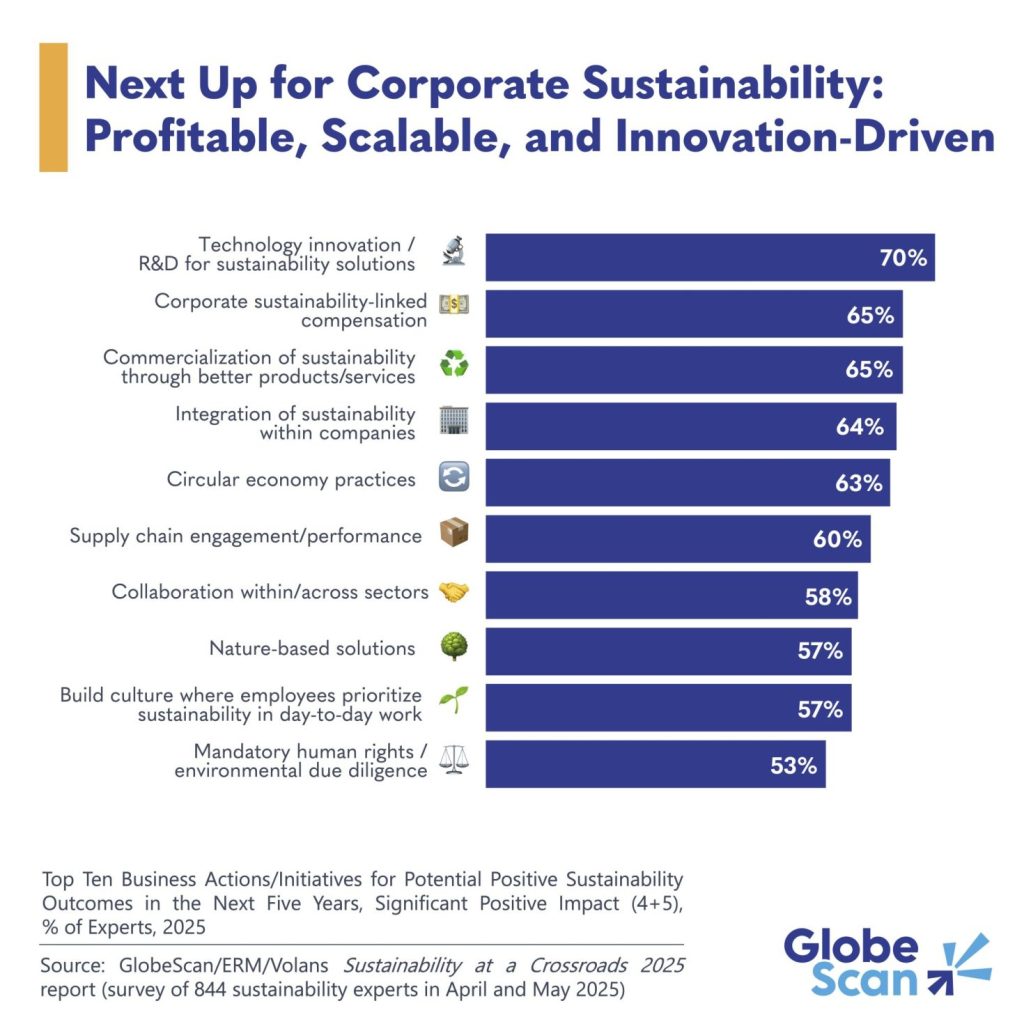5 corporate actions that will make the most impact by 2030
Sustainability efforts must be profitable, scalable and embedded in business operations. Read More

- Experts say technology and commercialization, along with corporate sustainability-linked compensation, are the most powerful business levers for impact over the next five years.
- The results show that sustainability efforts must be profitable, scalable and embedded, not peripheral to business operations.
- Other impactful, though less dominant business levers include employee culture, sector collaboration and nature-based solutions.
Sometimes it’s hard to tell what corporate actions are really making a difference. But according to a survey of more than 800 sustainability experts, these actions are the most impactful over the next five years:
- Tech innovation and R&D (70 percent)
- Corporate sustainability-linked compensation (65 percent)
- Commercialization of sustainability via products and services (65 percent)

Actions such as integrating sustainability within companies (64 percent) and adopting circular economy practices (63 percent) also rank in the top 10 in a list of 23 potential ways that business can drive positive sustainability outcomes, according to the survey by Trellis data partner GlobeScan in collaboration with ERM and Volans.
What this means
Experts are shifting focus from compliance and culture-building toward systemic, performance-driven strategies. The emphasis on technology and commercialization as key levers reflects a growing consensus that sustainability must be profitable, scalable and embedded — and not treated as peripheral.
At the same time, experts are calling on businesses to act as systems integrators, aligning across stakeholders and domains. They also want businesses to anticipate the convergence of expectations around innovation, circularity and supply chains, lead with transparency and embed sustainability into core strategy rather than approaching it as a separate or siloed initiative.
Based on a survey of 844 sustainability practitioners across 72 countries conducted April-May 2025.

















